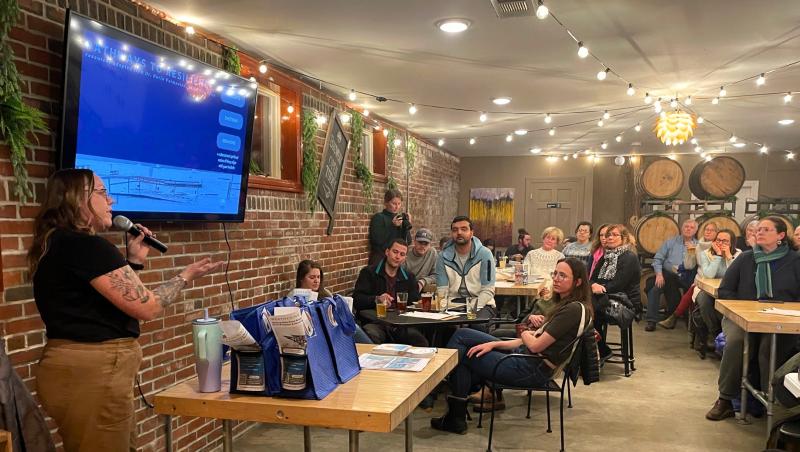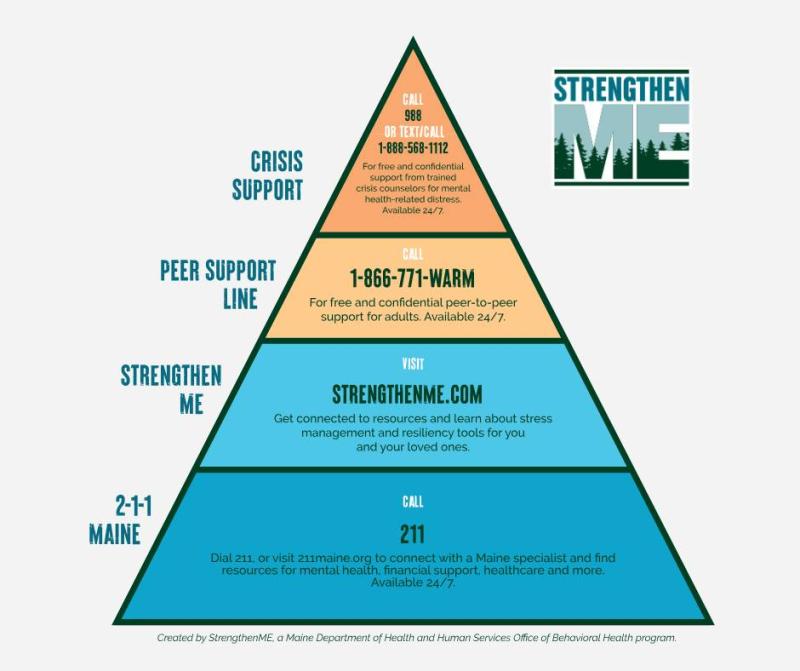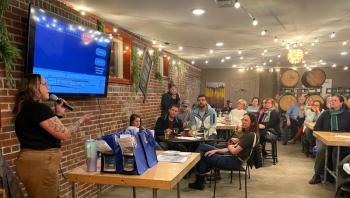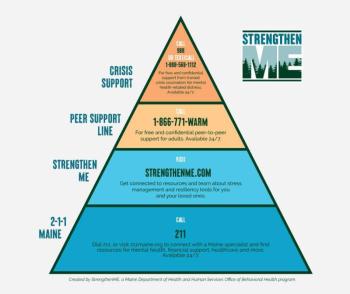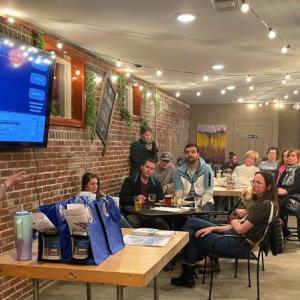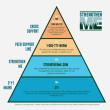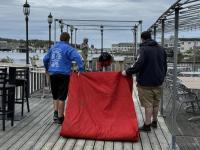Building storm resilience
The two winter 2024 storms that battered Maine’s coast cost an estimated $90 million worth of damage to public infrastructure according to the governor’s office. Images of underwater parking lots, destroyed fishing shacks, shattered roads, and mauled landmarks flooded the news. But the storms destroyed more than construction equipment can fix. Jan. 23, Brenda Hamilton from the Maine Coast Fishermen’s Association (MCFA) gave a talk in Boothbay Harbor about how to build resiliency to disasters, including for mental health.
“After looking at all of those pictures, after experiencing it ourselves — physical damages and emotional trauma from these storms — it's a strain on individuals, on communities, and as the state as a whole,” Hamilton said.
Extreme storms with higher storm surge and stronger precipitation are becoming more intense and frequent in Maine, according to the Gulf of Maine research institute. Although no one has a crystal ball for exactly what will happen, more storms will land, and Hamilton came with tools to help prepare.
Hamilton is the FEMA storm Outreach and Recovery Coordinator at MCFA, tasked with helping Mainers find and receive support for disaster relief. She spoke at Footbridge Brewery as part of the Ocean on Tap series, providing health tips, and guiding participants to resources for financial and wellness support.
Hamilton highlighted a program called StrengthenME, a statewide initiative to provide free support for people impacted by the storms. She said the program can help connect working waterfront communities with resources, including loans or grants to help rebuild. Many are specifically for those in fishing and aquaculture, but the program is available to anyone. StrengthenME workers are available through March 25.
The program can also help with hidden challenges that come after a disaster .Storms can destroy homes, businesses, and gear that many need for their lives and livelihoods. That loss can lead to emotional trauma and related health issues. Hamilton encouraged anyone experiencing loss of sleep, anxiety, increased stress, and other symptoms related to storm damage to reach out.
“When you disrupt someone's life, the lives of people, the way that storms do ... and you don't see sort of the forest through the trees, how you're going to work your way out of it, the most important thing to do is to ask for help,” said Holly Stover, who also spoke at the talk. “I think the most important thing is reach out and call and don't ignore it because it won't go away. And there will be another storm.”
Stover is a state house representative and Director of the Community Resource Council. She joined to talk about local resources available through the nonprofit such as heating assistance, transportation and addiction recovery.
Hamilton also provided tips to prepare for the next storm. She said to take photos of property and gear to document conditions before and after an event, and keeping a record of storm-related expenses could help with getting financial reimbursements. On a personal level, she also recommended connecting with neighbors, keeping in mind those that may be elderly, have special needs children, or have medical needs.
“These are all people that it would be great if you, as an able-bodied person, were able to check in on during the storm,” she said. “But maybe some of your neighbors could help you, right? Maybe some of your neighbors have more tools than others that they can help the neighborhood.”
Hamilton also talked about personal resilience. She said someone wouldn't expect to run a marathon without training, so they shouldn’t expect to handle disasters without practicing ways to build resilience. These include reframing thoughts to be more positive, regulating emotions through breathing exercises or creative hobbies, and changing behaviors to include exercise and more social interaction. She said even little things like stretching can help your body, which helps your mind relax.
“It doesn't have to be really intense all the time. Starting small can help,” Hamilton said as she pointed to a graphic that read "Give your brain as much attention as you give your dinghy."
To connect with StrengthenMe resources go online to https://strengthenme.com/storm-response-resources, call 211, or text your zip code to 898-211.

